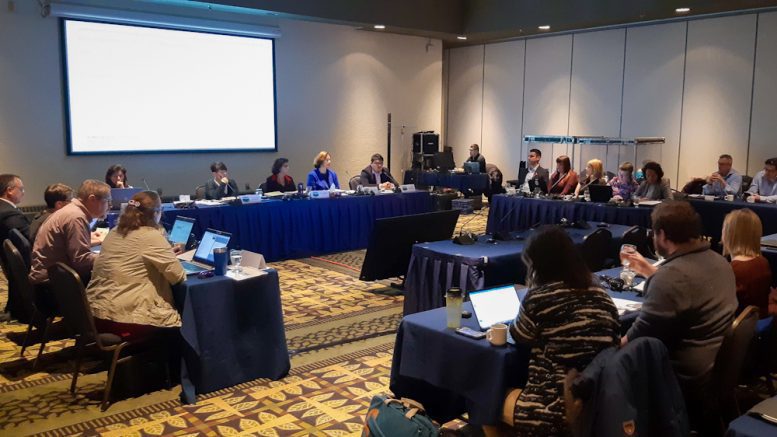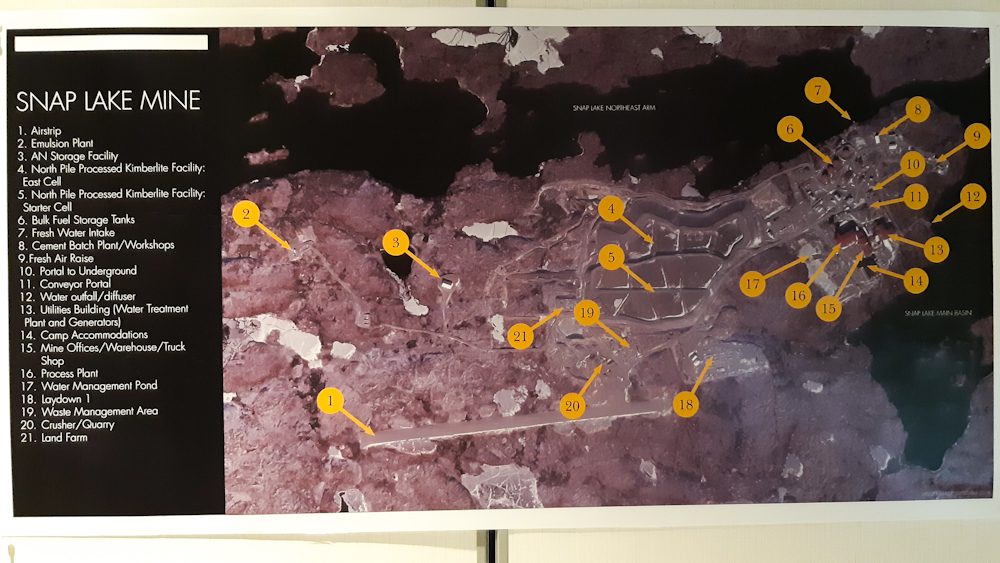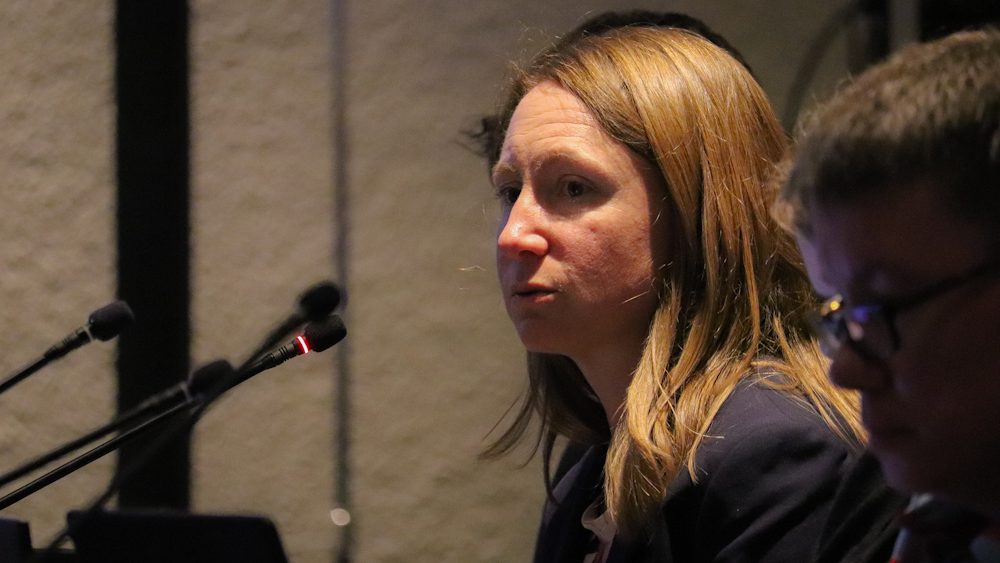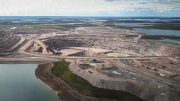At a public hearing this week on its water license application, De Beers said constructing wetlands at its closed Snap Lake mine site is no longer required, nor feasible.
The company initially proposed building wetlands in its water license application and final closure plan as a way to reduce nitrate in the water collected around the North Pile, which was used to store processed kimberlite, waste rock and other non-hazardous materials.
But now, “Given the water quality and effluent quality criteria expected, constructed wetlands will not be required,” said Terry Kruger, De Beers communications officer, in an email.
During its presentation at the hearing, De Beers representative Colleen Fraser said the company would have to operate its current water treatment plant until the wetlands matured (which could take about eight years), and that was not economically feasible.
CKLB asked De Beers about the cost comparison between building wetlands and not doing so.
Kruger did not say what the estimated costs would be, just that the decision to build wetlands had to be balanced “in terms of dollars as well as in terms of the additional impact on the environment of constructing them.”
Intervenors call for stricter water quality criteria
Environment and Climate Change Canada along with the Government of the Northwest Territories recommended the board adopt stricter water quality guidelines before issuing the license.
De Beers disagreed and said it needed flexibility when it came to water quality benchmarks.
De Beers’ current water license for the closed Snap Lake mine will expire next year. The Mackenzie Valley Land and Water Board (MVLWB) needs to issue a new one for the company to have its closure and reclamation plan approved.
The company shuttered the mine in late 2015; since closing, its water use has dropped by about 98 per cent.
During the hearing, De Beers representatives said the intention was to transition to stop actively treating the water at the site, but will continue to monitor quality.
The timeline for closure and post-closure is still unclear. During the hearing, Sarah McLean, the environmental permitting manager for De Beers, said that various parts of the site would enter post-closure at different stages.
Kruger explained, “Because we’re still in the permitting stage, we can’t predict a timeline of when activities would commence or conclude. We do understand that post-closure monitoring is a long-term activity.”
The hearing finished on Wednesday, November 27. Shelagh Montgomery, the MVLWB’s executive director, said the board is expected to deliberate in March of next year. Then it will deliver its recommendations to Environment and Natural Resources minister Shane Thompson, who is responsible for issuing the license.
Francis was a reporter with CKLB from January 2019 to March 2023. In his time with CKLB, he had the immense pleasure and honour of learning about northern Indigenous cultures.








